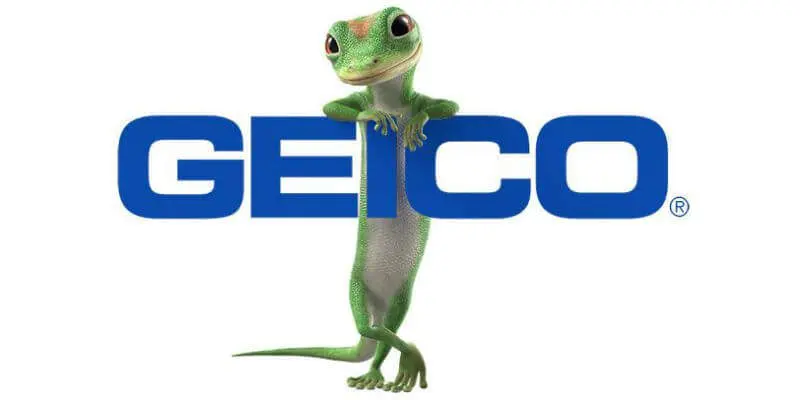Geico has been providing auto insurance for almost 70 years, covering both personal and business automobiles. Its high customer satisfaction scores and low complaint rate bode well for business owners wishing to insure a single work car or a fleet of vehicles. Interestingly, Geico offers other business insurance options like general liability and professional liability insurance. Find out more in this article.
Geico Business Insurance Coverage Options
For small-business owners, Geico provides the following coverage options:
- Business owners’ policy
- General liability.
- Professional liability.
- Workers’ compensation .
- Medical malpractice insurance.
- Commercial auto insurance.
- Cyber insurance.
While Geico underwrites its own commercial auto coverage, the rest of Geico’s business insurance policies are underwritten by Hiscox or a network of third-party insurers, depending on the kind of policy. Specific policies will be available in different states.
Geico General Businesss Liability Insurance
Geico provides general liability business insurance through Hiscox, with limits ranging from $300,000 to $2 million. A typical general liability insurance coverage has a $1 million per-occurrence limit and a $2 million aggregate maximum.
All business owners should have general liability insurance. It is available as a standalone policy or as part of a package deal with Geico’s business owner’s policy.
What is the Significance of The Geico General Liability Business Insurance?
General liability insurance covers the most prevalent hazards associated with running a business.
Geico general liability business insurance coverage covers legal fees if a customer trips and falls at your establishment, or if you accidently damage someone’s property. Personal and advertising damage, such as libel and copyright infringement, are also covered under this policy.
Small business owners frequently require Geico general liability insurance to fulfill lease, loan, or contract obligations. A landlord, for example, may need a certificate of insurance when you sign a commercial lease.
General liability insurance is an essential component of risk management for small enterprises, and it is reasonably priced.
General liability insurance is required if your company:
- Has a publically accessible location
- Collaborates with customers or clients
- Manages client property
- Possesses or rents commercial property
What Does Geico General Liability Business Insurance Cover?
Geico General liability insurance covers common liability claims made by third parties (people outside your business).
If someone sues you for physical harm, property damage, or advertising injury, this business insurance policy will cover your legal defense costs. Everything from hiring a lawyer to court-ordered verdicts and settlements might be covered by your coverage.
Your business general liability (CGL) policy specifically covers:
#1. Third-party bodily injuries
If a customer is injured in an accident at your place of business, general liability insurance can help cover medical costs. It also covers legal fees if a consumer sues because of the injury.
#2. Third party property damage
A general liability insurance policy might pay costs if your company inadvertently damages or destroys someone else’s property.
#3. Product liability
Not all property damage or client injuries occur within the confines of a store. If a company manufactures, distributes, or sells goods, it might be sued for the damage such goods cause to people or property.
Product liability insurance is typically included in commercial general liability (CGL) plans. This coverage assists in the payment of litigation and other financial damages resulting from defective products, labeling errors that affect customers, and other product hazards.
#4. Personal injuries and commercial injuries
If a business owner or employee is sued for defamation, libel, false arrest, or copyright infringement, general liability insurance can help cover legal fees as well as any settlement or verdict.
What is the Cost of General Liability Insurance?
General liability insurance premiums are determined by a number of factors, including:
- The extent of coverage
- Factors of industry and risk
- Location
- Number of employees
The average monthly cost of general liability insurance is $42. This is based on the average cost of general liability insurance.
Who is Covered by General Liability Insurance?
Most businesses require this insurance, especially if they rent or own office or commercial space. Even if this does not apply to you, general liability insurance is beneficial to small businesses that interact directly with clients and customers.
If you are sued by a customer or competitor, this insurance policy helps keep your business financially stable. Because general liability insurance provides such vital coverage, most small business owners purchase it as soon as they open their doors.
Is General Liability Insurance Legally Required?
In general, no, but states may require it in certain businesses, such as construction and cannabis. Depending on the nature of your firm, you may also require coverage to obtain a professional license in your state.
While commercial general liability (CGL) insurance isn’t normally needed by law, your landlord, mortgage company, business partners, or clients are likely to require it. Amazon merchants, for example, are forced to carry coverage once their sales exceed a particular amount.
A landlord or client may request that your company provide an ACORD certificate of insurance as confirmation of general liability insurance coverage. This document certifies that your company is capable of handling personal injury or property damage cases.
Most significantly, the certificate ensures that your property manager, bank, or customer will not be forced to pay the costs of a lawsuit against your organization.
Is General Liability Insurance Required for Independent Contractors?
Independent contractors, like any other small business owner, can be sued and held liable for customer accidents, customer property damage, or advertising injuries.
While contractors without a physical site or costly equipment are unlikely to require a business owner’s policy or commercial property insurance, they will benefit from general liability insurance.
If you do not want to purchase a commercial general liability (CGL) coverage, you can request that your clients add you as an additional insured to their policies. This will protect you for the duration of your employment with the customer that insures you.
Keep in mind that adding you to your clients’ general liability policies may result in a higher insurance cost, and your coverage will stop when the contract expires.
What is Not Covered by General Liability Insurance?
While general liability insurance is essential for most small businesses, it does not provide complete coverage. For example, your policy excludes coverage for:
#1. Professional errors
Professional liability insurance, often known as errors and omissions insurance (E&O), can cover claims arising from professional errors, such as unsatisfied services and missed deadlines.
#2. Injuries to employees
Workers’ compensation insurance is a policy that protects employees who are injured on the job by covering medical bills and disability benefits. Most states need it for firms with employees.
#3. Stolen or damaged business property
A business owner’s policy (BOP) can help cover the cost of replacing stolen business property. It also covers commercial property that has been damaged by a fire or certain weather occurrences. This policy offers a discounted combination of general liability and commercial property insurance.
#4. Employment discrimination claims
Employee claims of harassment, discrimination, and wrongful termination may be covered by employment practices liability insurance (EPLI).
#5. Vehicles used by a company
Personal automobile insurance policies nearly always prohibit commercial use. Most states mandate commercial auto insurance coverage for vehicles operated by a business.
Hired and non-owned auto insurance (HNOA), which can be added to a normal liability policy, can cover personal, leased, and rented vehicles used for professional purposes.
#6. Liquor liability
Liquor liability insurance covers legal expenditures resulting from situations involving intoxicated customers at your establishment. Drunk driving, assault, and vandalism are all possibilities.
Businesses that provide alcohol must follow this policy. It is available as a standalone policy or as an add-on to your general liability coverage.
Other Geico Insurance Coverages
#1. Geico commercial auto insurance
Geico has been insuring cars for nearly seven decades. The insurer has received fewer complaints than expected given its size in recent years, and its auto claims satisfaction rating has climbed from below average to above average.
Business auto insurance policies from Geico often contain liability (bodily injury and property damage), physical damage, personal injury, uninsured driver, and collision coverage. Coverage levels and deductibles can be tailored to your company’s specific requirements.
Geico business auto insurance is underwritten and managed by Geico, not a third-party insurer. That means Geico handles all quotes, claims, and customer service directly.
Electricians, contractors, landscapers, caterers, and anybody else who uses a vehicle for work should consider purchasing business automobile insurance. Rideshare and delivery drivers are the exceptions to this law. Instead, Geico advises rideshare insurance.
Geico insures the following commercial vehicle types:
- Cars.
- Vans.
- Trucks for hire.
- Box vans.
- Utility vehicles
- Food trucks
Geico does not provide commercial auto insurance for semi trucks and tractor-trailers.
#2. Geico professional liability insurance from
Professional liability insurance is sometimes known as mistakes and omissions insurance because that is exactly what it covers.
Geico’s professional liability insurance specifically covers:
- Alleged or actual mistakes and oversights, such as project delays, cost overruns, or providing wrong advice.
- Slander or libel.
- Costs of legal defense.
- Employee, temp, and independent contractor mistakes.
- Retroactive coverage for claims arising from previous employment
Professional liability insurance, like many of Geico’s business insurance products, is insured and operated by a third-party insurer.
In Conclusion,
Geico offers general liability insurance, but through a third-party insurer that underwrites the policy and handles any claims. This is the same for almost all other insurance policies. Geico, however, is an excellent stop for auto insurance coverage.
Related Articles
- TYPES OF BUSINESS INSURANCE: The Different Types You’d Need!!!
- Best 2023 BUSINESS INSURANCE Practices for Sole Proprietors (Updated)
- The Top 10 Best Small Business Insurance Companies In 2023
- CA BUSINESS INSURANCE: 2023 Comprehensive Guide (Updated)
- OHIO BUSINESS INSURANCE: 2023 Requirements & All You Need!!!


